Overview
At Paras Health, our Renal Sciences department stands at the forefront of advanced kidney care, offering comprehensive diagnostic, therapeutic, and surgical services for patients with renal disorders. With a multidisciplinary approach and a team of highly skilled nephrologists, urologists, transplant surgeons, and support staff, we provide personalized treatment plans tailored to each patient's unique needs. From state-of-the-art dialysis units equipped with the latest technology to cutting-edge renal transplantation services, we are committed to delivering compassionate care and achieving optimal outcomes for patients with kidney diseases. Whether it's managing chronic kidney conditions, performing complex transplant surgeries, or providing holistic support for renal wellness, Paras Health's Renal Sciences department is dedicated to excellence in kidney care, ensuring a better quality of life for our patients.
Sub Specialities
Treatment And Ailments
Endourology and Stone Disease
Neurourology and Reconstructive Urology
Prostate Clinic
Urologic Oncology
Dialysis
Transplant Medicine
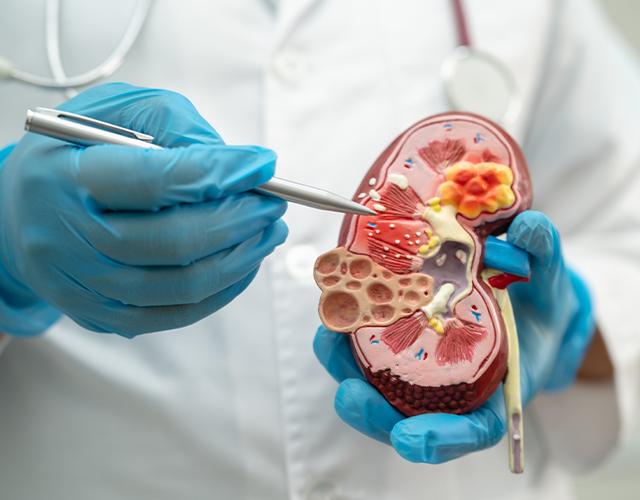
Endourology involves minimally invasive techniques to diagnose and treat kidney stones and other urinary tract conditions. Procedures such as ureteroscopy (URS) and percutaneous nephrolithotomy (PCNL) are used to remove stones or fragment them using lasers or pneumatic devices, promoting faster recovery and reducing the need for traditional surgery.
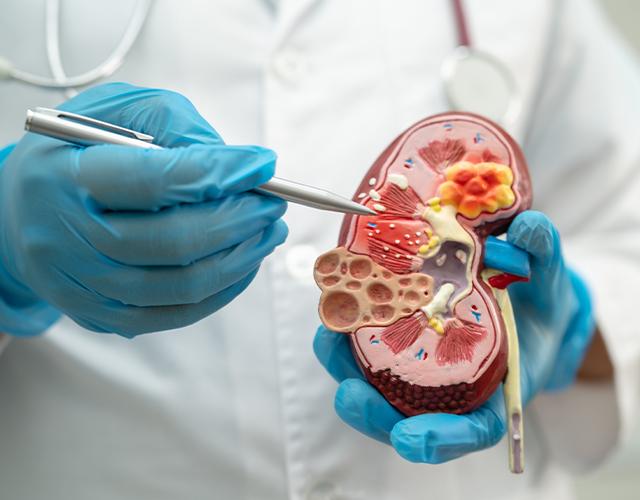
Neurourology focuses on managing urinary tract problems caused by neurological disorders such as spinal cord injury, multiple sclerosis, or Parkinson's disease. Reconstructive urology involves surgical procedures to restore or improve the function of the urinary tract, bladder, or pelvic floor affected by congenital anomalies, trauma, or cancer treatments.
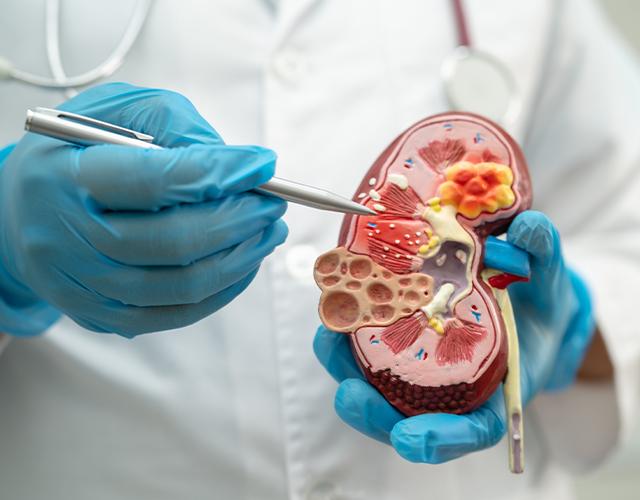
Comprehensive care for prostate conditions includes screenings, diagnosis, and treatment options for conditions such as benign prostatic hyperplasia (BPH), prostate cancer, prostatitis, and urinary incontinence. Treatments range from medications and minimally invasive therapies to surgical procedures like transurethral resection of the prostate (TURP) or robotic-assisted prostatectomy for prostate cancer.
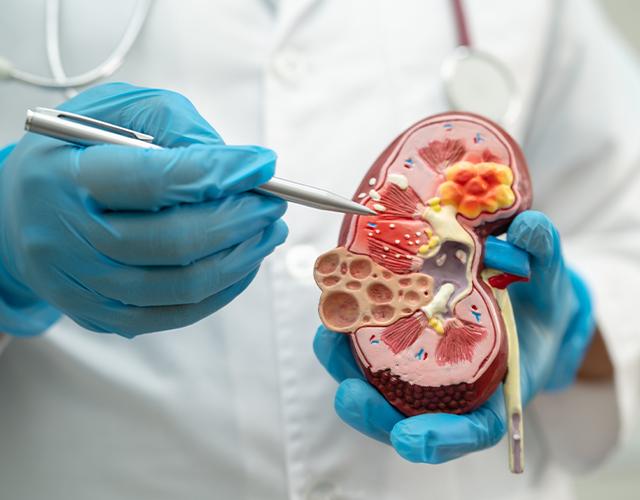
Urologic oncology specializes in the diagnosis and treatment of cancers affecting the urinary system, including the kidneys, bladder, prostate, and testicles. Treatment options may include surgery (nephrectomy, cystectomy), radiation therapy, chemotherapy, immunotherapy, or targeted therapy, depending on the type and stage of the cancer.
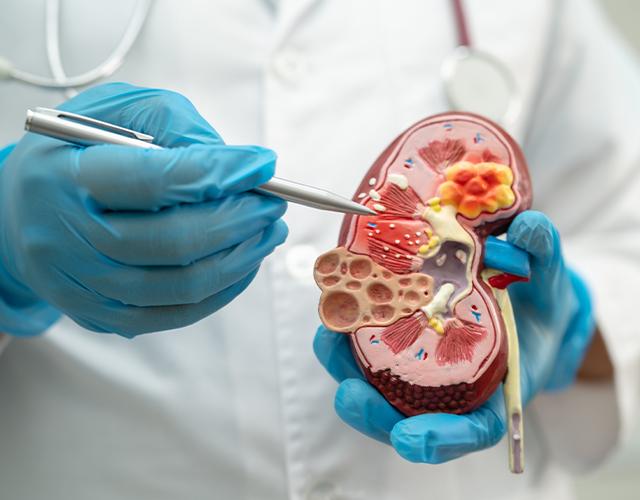
Dialysis is a life-sustaining treatment for patients with end-stage kidney failure, where a machine filters waste products and excess fluids from the blood, replicating the kidneys' natural function. There are two main types: hemodialysis, which uses a machine to clean blood outside the body, and peritoneal dialysis, where a special fluid is introduced into the abdomen to filter waste inside the body. Dialysis helps maintain electrolyte balance and fluid levels, improving overall health and longevity for kidney failure patients awaiting transplantation.
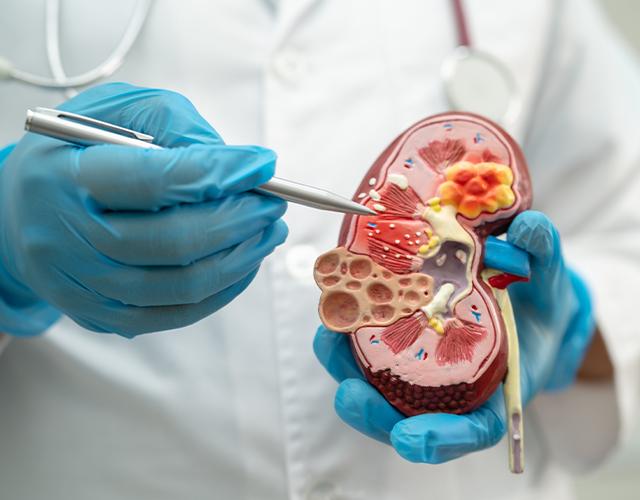
Transplant medicine involves comprehensive care for patients before, during, and after organ transplantation. This includes assessing transplant eligibility, coordinating with donors and recipients, managing immunosuppressive medications to prevent organ rejection, and monitoring for complications post-transplant. The goal is to optimize transplant outcomes and ensure long-term graft survival, providing patients with a new lease on life through organ replacement.
Acute Kidney Injury
Alport Syndrome
Bartter Syndrome
Bladder Pain Syndrome
Carcinoma Prostate
Diabetic Kidney Disease
Glomerular Disease
Horseshoe Kidney
Hydronephrosis
Interstitial Cystitis
Acute Kidney Injury
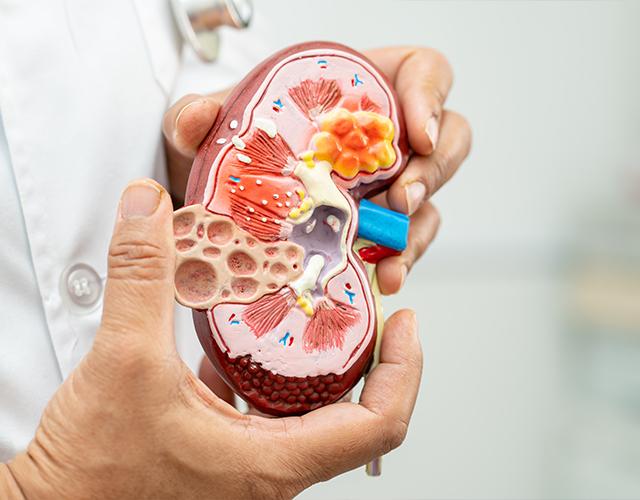
Acute Kidney Injury (AKI) is a sudden decline in kidney function, leading to an accumulation of waste products in the blood and an imbalance of fluids and electrolytes. It can result from various factors such as severe infections, dehydration, medications, or trauma. Early detection and prompt treatment are crucial to prevent permanent kidney damage. Our renal care specialists employ advanced diagnostic tools and treatment strategies to manage AKI effectively, ensuring a rapid recovery and minimizing long-term complications.
Alport Syndrome
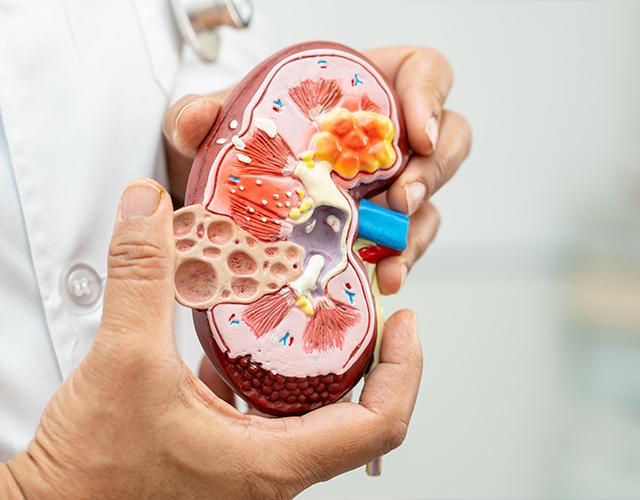
Alport Syndrome is a genetic disorder characterized by progressive kidney disease, hearing loss, and eye abnormalities. It results from mutations affecting the type IV collagen in the basement membranes of the kidneys, ears, and eyes. Symptoms typically include hematuria, proteinuria, and gradual loss of kidney function. There is no cure, but early diagnosis and treatment can slow disease progression and improve quality of life. Our expert team provides comprehensive care, including genetic counseling, regular monitoring, and supportive therapies to manage Alport Syndrome.
Bartter Syndrome
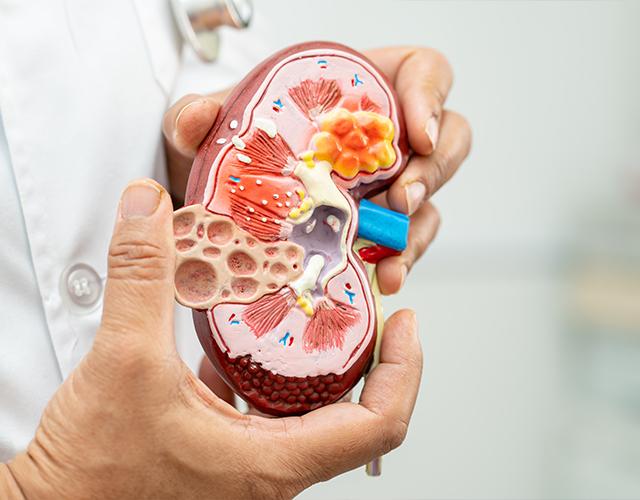
Bartter Syndrome is a rare genetic disorder that affects the kidneys' ability to reabsorb salt, leading to imbalances in electrolytes such as potassium, calcium, and magnesium. This can cause symptoms like growth retardation, muscle weakness, and dehydration. Treatment focuses on managing electrolyte imbalances and supporting normal growth and development. Our specialized care team offers personalized treatment plans, including medications and dietary modifications, to effectively manage Bartter Syndrome and improve patient outcomes.
Bladder Pain Syndrome
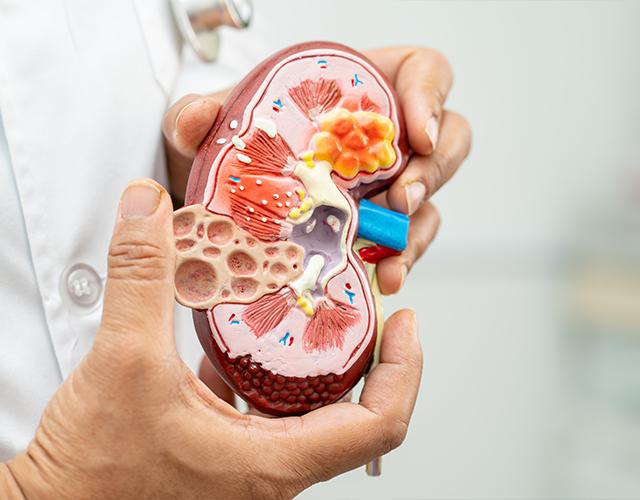
Bladder Pain Syndrome, also known as Interstitial Cystitis, is a chronic condition characterized by bladder pressure, bladder pain, and sometimes pelvic pain. The exact cause is unknown, and symptoms can vary widely among patients. Treatment options include medications, physical therapy, bladder instillations, and lifestyle changes to alleviate pain and improve bladder function. Our urology team provides comprehensive evaluation and individualized treatment plans to help patients manage their symptoms and enhance their quality of life.
Carcinoma Prostate
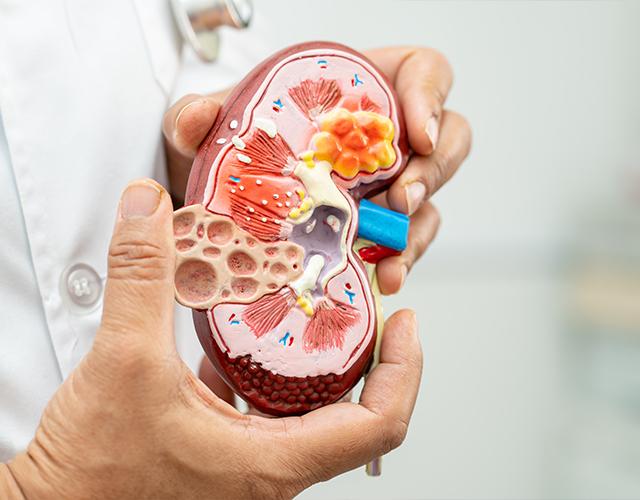
Carcinoma Prostate, or prostate cancer, is a common malignancy in men, developing in the prostate gland. Early detection through screening methods like PSA tests and digital rectal exams is essential for successful treatment. Treatment options include surgery, radiation therapy, hormone therapy, and chemotherapy, depending on the stage and aggressiveness of the cancer. Our oncology team provides advanced, personalized treatment plans, focusing on the latest medical innovations and patient-centered care to achieve optimal outcomes and maintain quality of life.
Diabetic Kidney Disease
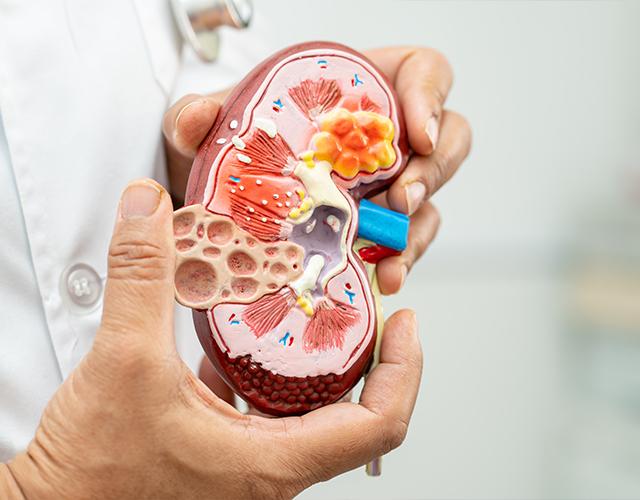
Diabetic Kidney Disease, also known as diabetic nephropathy, is a complication of diabetes that affects the kidneys' ability to filter waste from the blood. It is characterized by proteinuria, declining kidney function, and eventual kidney failure if not managed properly. Early detection and strict control of blood glucose and blood pressure are critical to slowing disease progression. Our renal care specialists offer comprehensive management plans, including medications, lifestyle changes, and regular monitoring, to preserve kidney function and prevent complications.
Glomerular Disease
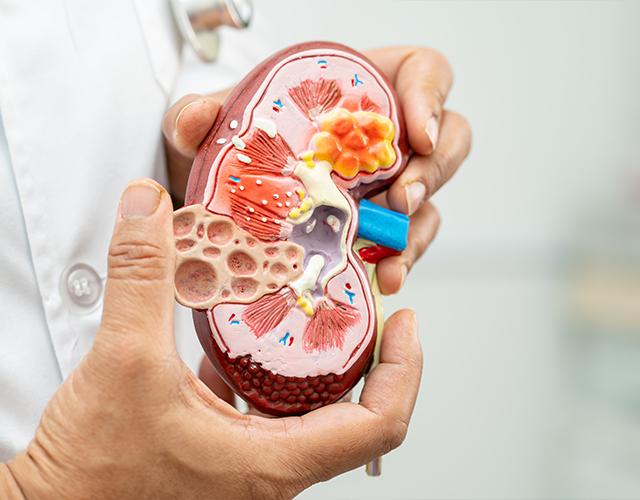
Glomerular Disease refers to a group of conditions that affect the glomeruli, the tiny filters in the kidneys responsible for removing waste and excess fluids from the blood. These diseases can cause symptoms like proteinuria, hematuria, and reduced kidney function. Treatment varies depending on the specific type of glomerular disease and may include medications, dietary changes, and sometimes dialysis. Our nephrology team provides expert diagnosis and tailored treatment plans to manage glomerular diseases effectively and improve patient outcomes.
Horseshoe Kidney
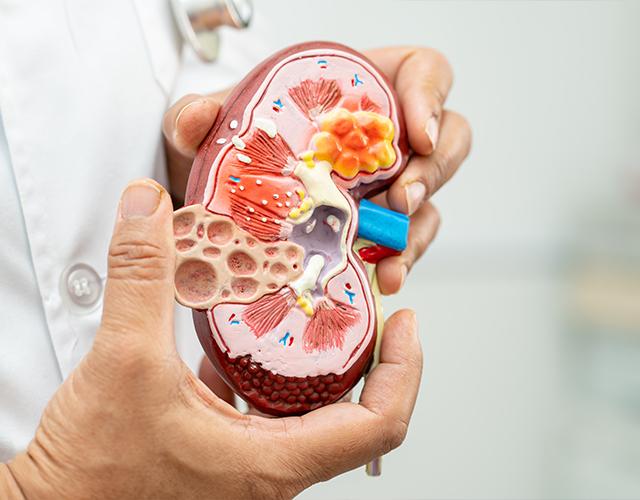
Horseshoe Kidney is a congenital condition where the kidneys are fused together at their lower ends, forming a U-shape. While many individuals with this condition are asymptomatic, it can sometimes lead to complications such as urinary tract infections, kidney stones, and hydronephrosis. Treatment focuses on managing these complications and maintaining kidney function. Our multidisciplinary team offers comprehensive care, including monitoring and interventions as needed, to support patients with Horseshoe Kidney and ensure their long-term health.
Hydronephrosis
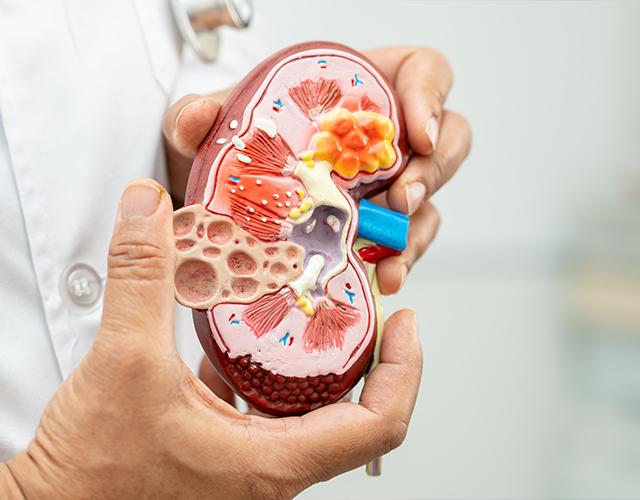
Hydronephrosis is the swelling of one or both kidneys due to a build-up of urine caused by an obstruction or blockage in the urinary tract. This condition can lead to kidney damage if not addressed promptly. Symptoms may include pain, urinary tract infections, and impaired kidney function. Treatment involves identifying and relieving the obstruction, which may require surgical intervention. Our urology specialists provide thorough evaluations and customized treatment plans to manage hydronephrosis effectively and preserve kidney health.
Interstitial Cystitis
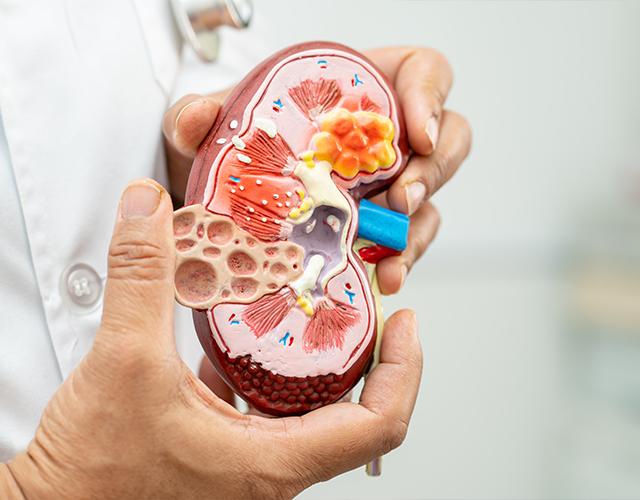
Interstitial Cystitis, also known as Bladder Pain Syndrome, is a chronic condition characterized by bladder pressure, bladder pain, and pelvic pain. The exact cause is not well understood, and symptoms can vary significantly among patients. Treatment options include medications, bladder instillations, physical therapy, and lifestyle modifications to alleviate symptoms and improve bladder function. Our urology team offers comprehensive care and personalized treatment strategies to help patients manage Interstitial Cystitis and enhance their quality of life.
Technology
Meet Our Doctors
At Paras Hospital Gurugram, our experienced Nephrologists form the backbone of our commitment to exceptional Renal health management. With a diverse array of surgical care, preventive techniques and numerous procedures, our doctors make some of the most patient-centric Nephrologists.





















.jpg)




